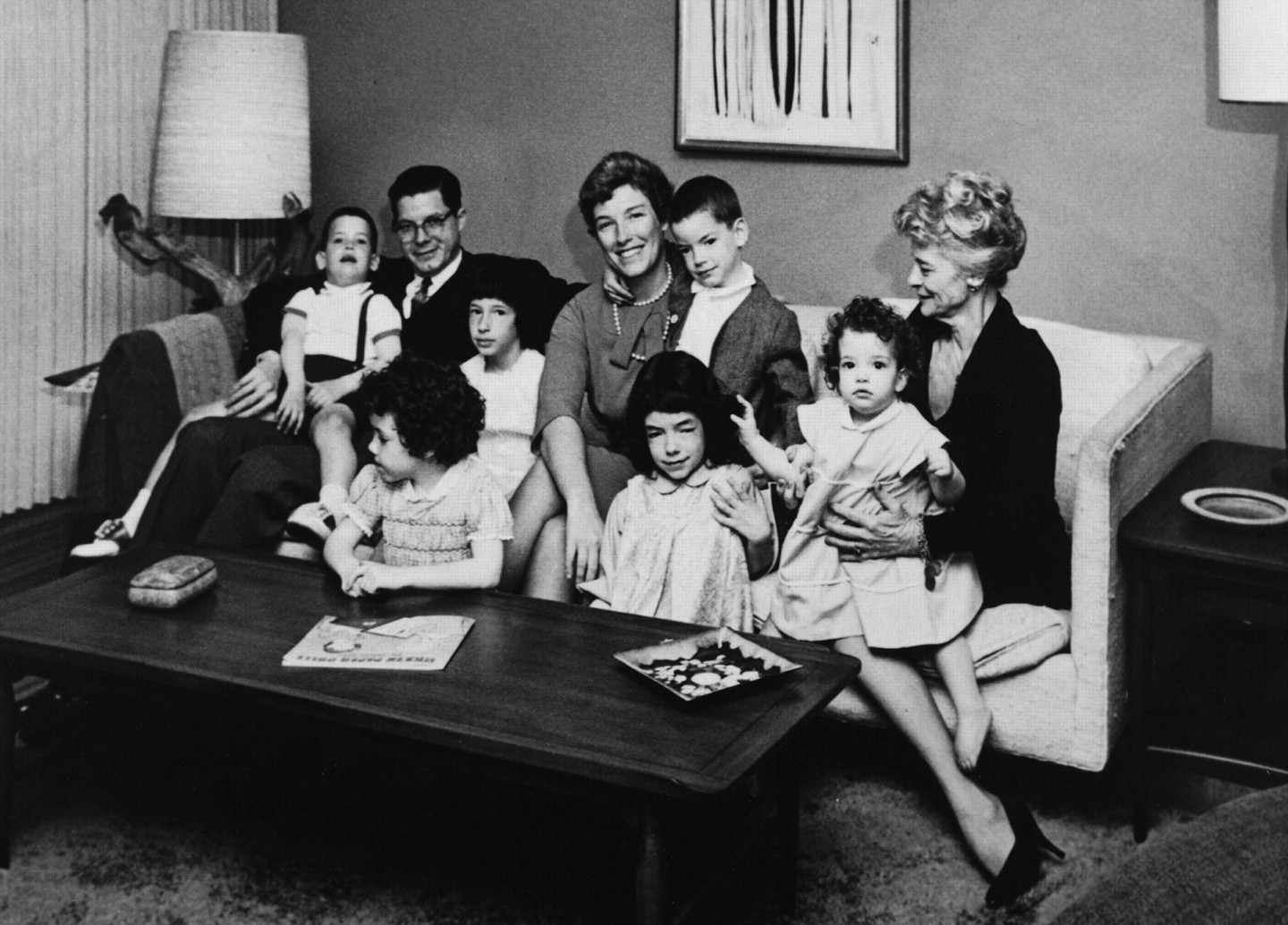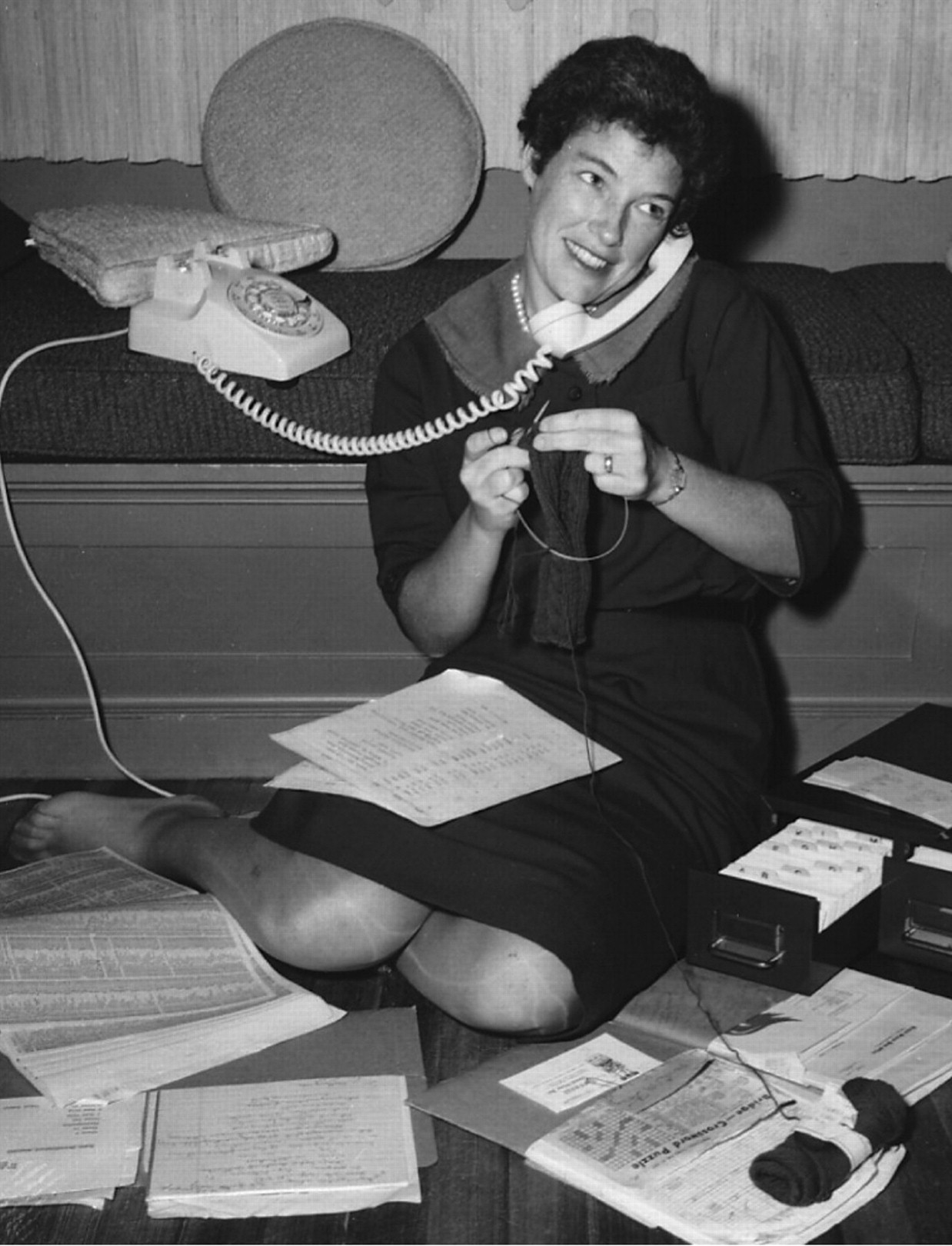Mother's Suicide Propels Psychiatrist on a Mission
Abstract
When she was 4 years old, according to family lore, Nancy Rappaport, M.D., was the last person to see her mother alive.
For two years Rappaport and her five siblings had been at the center of a custody battle between her mother, with whom she shares a name, and her father. The custody case wound up in the Massachusetts Supreme Court on appeal and ended in September 1963 with her father winning custody of the six children.
Prior to the court ruling, her mother anticipated the return of her children and had prepared the large house she shared with her new husband in Boston for their arrival.
But the children's rooms would stand empty. On the afternoon of the ruling, Rappaport's mother, age 34, took a fatal overdose of barbiturates, leaving behind a daughter who has since set out to understand the tragic loss of her mother.

Nancy Rappaport, M.D. (right, seated on her grandmother's lap), was only 4 when her mother died and said she has few memories of her. She interviewed her five siblings and family friends to learn more about her mother.
Rappaport, now a child and adolescent psychiatrist in Cambridge, Mass., has carefully unearthed the past to learn more about her mother and why she ended her life.
In her 2009 memoir, In Her Wake: A Child Psychiatrist Explores the Mystery of Her Mother's Suicide, Rappaport wrote, “I have few mementos and even fewer memories. My mother is defined by her absence.”
In a recent interview with Psychiatric News, Rappaport noted that when she gave birth to her daughter, Lila, she held her in her arms and felt a surge of love and connection with her. She realized, “in a real and profound way,” that this was the way her mother loved her as well.
But Rappaport had a hard time reconciling her mother's love for her with what some at the time called the “brutal” and “desperate” act of leaving six children by taking her own life.
Over an 18-year span, the author pieced together a narrative that would help her better understand what happened. She interviewed immediate family members, her mother's friends, and her mother's doctor at the time of her death. She also unexpectedly stumbled upon journals that her mother had kept and a novel she was writing at the time of her death called The End of Freedom.
“My mother came alive across time,” Rappaport noted.
Excavating the Past
Rappaport's mother's death was seldom discussed by the family when she was young, she noted.
Emboldened by a strong curiosity about the events that led to her mother's death, Rappaport's older sister Judy scoured the microfilm collection at the Boston Public Library. The newspaper accounts she discovered and shared with Rappaport mentioned that custody of the children had been awarded to their father. According to the account, Rappaport's mother tried to visit her children at her former husband's home in West Roxbury, Mass., where the children were living. He turned her away, and she died by suicide that afternoon.

The senior Nancy Rappaport enjoyed organizing social functions and political events and also had political aspirations of her own.
Rappaport's sister also discovered news accounts of a prior suicide attempt two years before her mother's death—along with the caption, “Takes Three Handfuls of Sleeping Tablets”—that seemed out of place under the photo of the smartly dressed, smiling young woman that appeared in the newspaper.
Rappaport also uncovered an ominous bleakness in her mother's journals, conveyed through her descriptions of “long black insomniac nights” and “hateful solitudes.”
“It doesn't take a psychiatrist to see that my mother was struggling with darkness,” Rappaport remarked. Although she hesitates to diagnose her mother posthumously, she postulated that she was most likely struggling with a mood disorder such as bipolar disorder—her dark moods were punctuated by bursts of energy.
Interviews with her mother's friends revealed a picture of a doting parent who was industrious and civic-minded. As the daughter of Massachusetts politicians, she also carried her own political ambitions and divided her time between caring for her six children and organizing social functions and political campaigns.
Valuable Stigma-Fighting Opportunity
Rappaport describes In Her Wake as not only a conduit of love and healing, but as a teaching tool as well. After the memoir was published in September 2009, she began crisscrossing the country to talk about the book in keynote speeches, grand rounds, and book signings.
“One important part of my career as a psychiatrist is to destigmatize certain aspects of mental illness and encourage people to get treatment by helping people to understand it. Sharing the experience of my personal growth and growth as a clinician is another opportunity to accomplish this.”
In her work as an assistant professor of psychiatry at Harvard Medical School, Rappaport teaches a freshman seminar called “Memoir in Psychiatry” in which students study texts such as An Unquiet Mind by Kay Redfield Jamison, Ph.D. She also teaches adult-psychiatry residents about normal and abnormal development in children. In addition, she teaches child and adolescent psychiatry fellows about school consultation.
As the director of school-based programs in the Division of Child Psychiatry at Cambridge Health Alliance, Rappaport uses her expertise to incorporate mental health interventions in Boston-area schools and focuses on the collaboration between education and psychiatry.
She also evaluates children with behavioral problems in the Cambridge public schools either in the classroom or at their homes. Cambridge Health Alliance has school-based health clinics in Cambridge, Everett, Somerville, and Malden, Mass., and each clinic is staffed by a nurse, a nurse practitioner, a social worker, and a part-time psychologist, some of whom are supervised by Rappaport. “We are on the front line, collaborating to provide a safety net for kids in distress.”
‘Love Lasts Longer Than Death’
Since In Her Wake was published, Rappaport has revealed information about her family and her discoveries about her mother to those around her. “It has been very meaningful for me to share my story with colleagues and general audiences,” she said. “Doing so generated some productive dialogue about suicide and prevention” (see See also: How to Help Suicide Survivors).
She said she hopes her willingness to speak about her mother's suicide will help people open up about their own experiences and dispel some of the myths with which survivors of suicide loss often live.
For Rappaport, her revelation that “love lasts longer than death” has been something that gives her strength as a parent, daughter, and clinician.
The process of rediscovering her mother 40 years after her death has been a gift, she noted. “Every time I get before an audience to share my family's story, I turn to the relationship I have formed with my mother in a certain way over time. Understanding her loss was the north star of my existence.... I have found comfort, renewed purpose, and meaning since.”
Rappaport will discuss her book at APA's annual meeting in New Orleans on Sunday, May 23.



